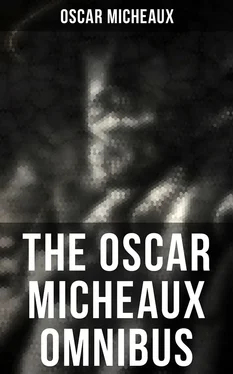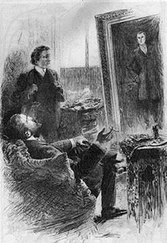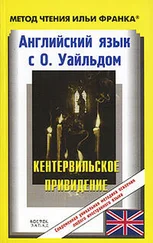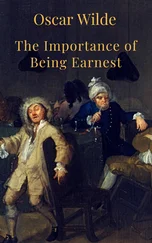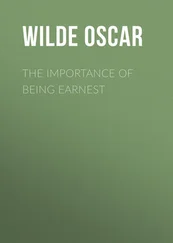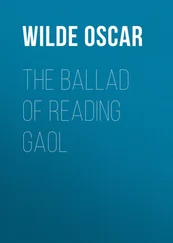Now if "the woman" was brought to look it over one of the first inquires she made would be, "Now is there plenty of water?" furthermore she was liable to steal a march on the dealer by having her husband hire a livery team, and with the eastern farmer and his wife drive out to the place and look the farm over without the agent to steer them clear of the bad places. They not only looked it over, but make inquiries of the neighbors as to its merits. Now country people have the unpardonable habit of gossip, and have complicated many deals of the real-estate men by this weakness, even caused many to fall through, until, the land sharks are usually careful to prevent a buyer from having a conversation with "Si."
In my case, however, this was quite different. I was known as "a booster", and since my land was located between the Monca and Megory—this was considered the cream of the county as to location soil, and other advantages—instead of being nervous over meeting me, the dealers would drive into the yard or into the fields, and as I liked to talk, introduce the prospective buyers to me and we would engage in a long conversation at times. I might add that exaggerated tales were current, which related how I had run as P——n porter, saved my money, come to the Little Crow, bought a half section, and was getting rich. The most of the buyers from Illinois, Iowa, Minnesota and Nebraska were unused to seeing colored farmers, and my presence all alone on the former reserve added to their interest. In my favor was the fact that my service in the employ of the P——n Company had taken me through nearly every county in the central states and therefore, always given to observation, I could talk with them concerning the counties they had come from.
Land prices continued to soar. Higher and higher they went and to boost them still higher, as well as to substantiate the values, the bogy concerning insufficient moisture was drowned in the excessive rainfall. From April until August it poured, and the effect on the growing crops in the east became greater still in the way of drowned out corn-fields and over-rank stems of small grain that grew to abnormal heights and with the least winds lodged and then fell to the ground. The crops on the reservation could not have been better and prices were high.
CHAPTER XXII
THE PRESIDENT'S PROCLAMATION
Table of Contents
Coincident with the expectation came the president's proclamation throwing four thousand claims in Tipp county open to settlement under the lottery system at six dollars per acre. Among the towns designated in the proclamation where the people could make application for a claim, Megory and Calias were nearest to the land. These were the places where the largest crowds were expected. Therefore, the citizens of these two vigorous municipalities began extensive preparations to "entertain the crowds." Megory, being more on the country order, made more homelike preparations. Among the many "conveniences" prepared were a ladies' rest room and information bureau, which were located in a large barn previously used for storing hay
Calias, under the criticism that as soon as the road extended farther west it would be as dead as Oristown—now all but forgotten—prepared to "get theirs" while the crowds were in town. And they did, but that is ahead of the story.
The time for the opening approached. People seemingly from every part of the universe, and from every vocation in life, drifted into the towns. Among these were included the investors, who stated that in the event of a failure to draw they would buy deeded land. Next in order were the gamblers, from the "tin horn" and "piker" class to the "fat" professionals. Although every precaution was taken to keep out the characters of the city's underworld, who had characterized former openings, both towns were fully represented with a large share of pickpockets, con-men, lewd women and their consorts.
The many vacant lots on Main street of both the towns were decorated with the typical scene at land openings. There were little tents with notaries assisted by many beautiful girls to "prepare your application." There were many hotels with three and four beds to a room, as well as "rooms to let" over all the places of business containing two stories or more. There were tents with five hundred cots, and "lest we forget", there were the numerous "drinking fountains," with bars the length of the building, behind which were scores of bartenders to serve the "how dry I am", on one side. On the other, in tents, back rooms and overhead could be heard the b-r-r-r-r of the little ivory marble as it spun a circuit over the roulette wheel, and the luck cages, where the idle sports turned them over for their own amusement, to pass away the time. The faro-bank and numerous wheels of fortune also had a place. From the rear came the strains of ragtime music. These were some of the many attractions that met the trains carrying the first arrivals on the night of October fifth.
CHAPTER XXIII
WHERE THE NEGRO FAILS
Table of Contents
Long before I came west and during the years I had spent on the homestead, my closest companion was the magazines. From the time Thomas W. Lawson's "Frenzied Finance" had run as a serial article in a leading periodical, to Ida M. Tarbell's "The History of the Standard Oil Company," I fairly devoured special articles on subjects of timely interest. I enjoyed reading anything that would give me a more complete knowledge of what made up this great country in which we live and which all Americans are given to boasting of as the "greatest country in the world.
And this brings to my mind certain conditions which exist concerning the ten odd millions of the black race in America; and more, this, in itself had a tendency to open wider the gap between a certain class of the race and myself.
There are two very distinct types or classes, among the American negroes. I am inclined to feel that this is more prominent than most people are aware. I have met and known those who are quick to think, practical, conservative as well as progressive, while there are those who are narrow in their sympathies and short-sighted in their views. Now as a matter of argument, my experience has taught me there are more of this class than most colored people have any idea.
The worst feature of this situation, however, is that a large number of the latter class have commingled with the former in such a way as to easily assume all the worthy proportions. They are a sort of dog in the manger, and are not in accord with any principle that is practical and essential to the elimination of friction and strife between the races.
Among the many faults of this class is, that they do not realize what it takes to succeed, nor do they care, but spend their efforts loudly claiming credit for the success of those who are honest in their convictions and try to prove themselves indispensable citizens. Nothing is more obvious and proves this more conclusively than to take notice, as I have, of their own selection of reading matter.
Now, for instance, a few years ago a series of articles under the title of "Following the Color Line" appeared in a certain periodical, the work of a very well known writer whose specialty is writing on social conditions, strikes, etc.
In justice to all concerned, the writer described the conditions which his articles covered, just as he found them and in this, in my opinion, he differed largely from many of the southern authors whose articles are still inclined to treat the Ethiopians as a whole, as the old "time worn" aunt and uncle. Not intending to digress, I want to put down here, that negroes as a whole are changing to some extent, the same as the whites and no liberty-loving colored man appreciates being regarded as "aunt," or "uncle" even though some of these people were as honorable as could be. This is a modern age.
Читать дальше
